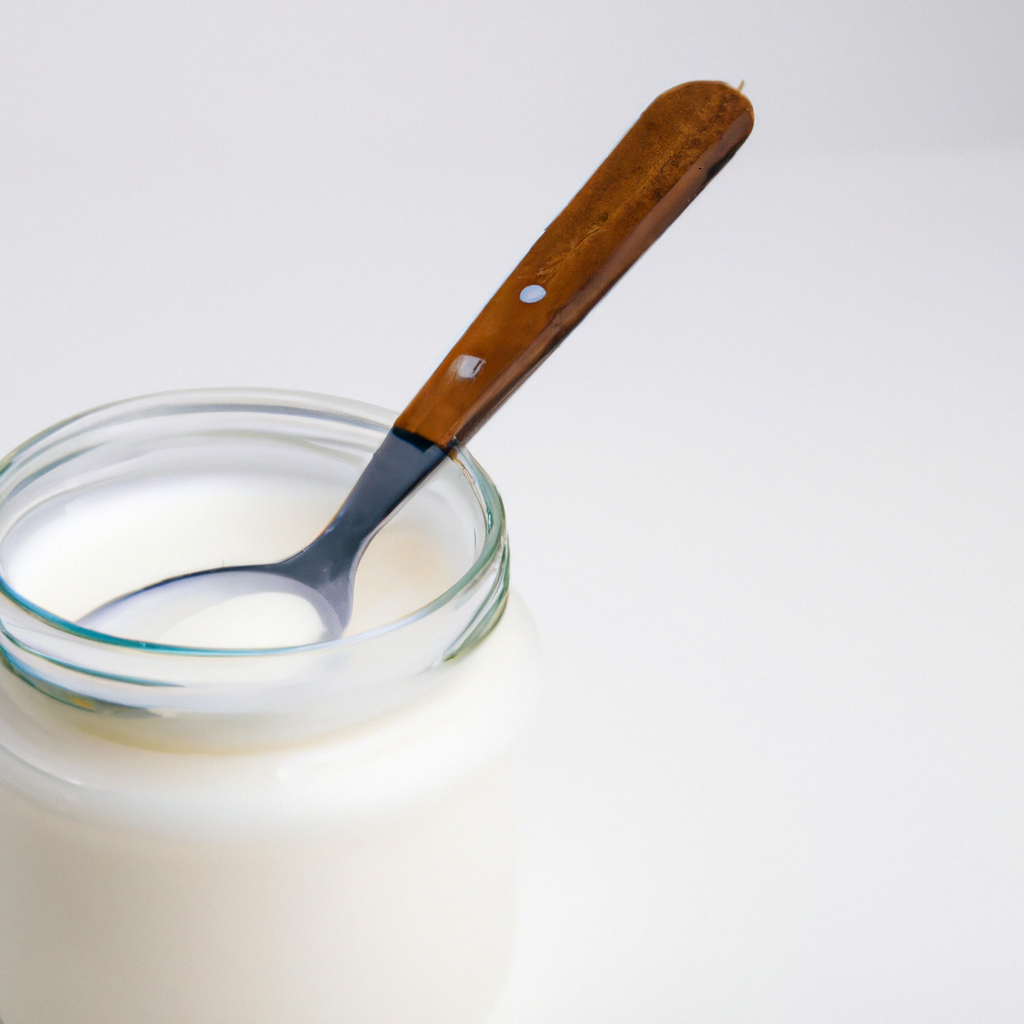What are Probiotics and What Makes them so Beneficial?
As we are still in the awareness month of gut health I felt it may be helpful to focus on an area that many people want to know more about for improving their gut; Probiotics.
Probiotics have been around since ancient times when cheese and fermented products were popular among the Greeks and Romans. They even encouraged each other to consume these for the potential health benefits. The word “probiotic” comes from the Greek word for “for life.”
Jump to 1905, a Bulgarian physician and microbiologist Stamen Grigorov identified the first recorded probiotic, Lactobacillus bulgaricus, in Bulgarian yoghurt. This discovery was groundbreaking and has led to further research into the potential of probiotics for many years. Today, probiotics are widely used in healthcare and nutrition as a natural way to improve digestive health and overall well-being.

So what are they?
Probiotics are live microorganisms that have been researched and proven to provide health benefits when consumed from suitable sources in adequate amounts. They are commonly found naturally in food sources often fermented such as yoghurt, miso, tempeh, sauerkraut and cheeses. In recent years this can also be taken as a supplement and due to modern manufacturing a mass market of choice has “mushroomed” onto the probiotic shelves.
Probiotics work by introducing beneficial bacteria into the gut microbiome which helps to maintain a healthy balance of microorganisms. This balance is important for proper digestion, nutrient absorption, and immune system functioning.
Research has shown that probiotics can help to reduce inflammation, improve digestive health, and boost the immune system.
Additionally, probiotics may also help to reduce symptoms of certain diseases such as irritable bowel syndrome (IBS) and inflammatory bowel disease (IBD).
Exploring the Different Sources of Probiotics and How to Properly Integrate Them Into Your Diet
We know probiotics are found naturally in certain foods, such as yoghurt, sauerkraut and miso. But as mentioned they can also be taken as supplements in the form of liquids, pills or powders and even research has been carried out intranasally.
I can’t cover them all as you would be really bored still reading in a few hours time! Suffice to say there are so many to choose from I often wonder is this more to do with confusing the consumer and encouraging them to keep buying new ones, and thus clever marketing, more money spent from repeat purchases. I really hope it is that we are just really lucky that the manufacturers are improving therapeutic doses, strains and delivery methods for all ages and stages of life.
Most common types of probiotics
Lactobacillus (Lactobacillus acidophilus) – This strain helps maintain a healthy balance between good and bad bacteria in your intestines. It’s also thought to help prevent diarrhoea caused by antibiotics.
Bifidobacterium (Bifidobacterium lactis) – This strain helps improve lactose intolerance, boost immunity, reduce inflammation throughout the body (including in joints), help regulate blood sugar levels after eating carbohydrates like bread and pastas–and even reduce symptoms associated with irritable bowel syndrome (IBS).
Just because they are common and frequently recommended in health food stores they are not always the best choice for many.

Probiotics for Specific Conditions
Probiotics are a good choice for anyone who wants to improve their health. They can help with digestion, immune function and even weight loss. But there are some specific conditions where probiotics are useful:
Irritable Bowel Syndrome (IBS). This condition affects the colon or large intestine. It causes abdominal pain and bloating that may be accompanied by diarrhoea or constipation. Many people with IBS also experience gas and other symptoms like nausea or vomiting after eating certain foods. Studies have shown that taking certain probiotics while addressing the diet can help relieve these symptoms because they help balance out the bacteria in your gut–a process called “gut dysbiosis.”
Our gut health programmes are uniquely designed for each individual to ensure probiotics are selected based on your specific requirements.
Diabetes Type 2 prevention/treatment: Research has shown that taking certain strains of Lactobacillus rhamnosus GG (LGG) over time can reduce blood sugar levels in people who have prediabetes or type 2 diabetes mellitus (DM2). In one study published in Diabetes Care journal found that supplementing with LGG lowered fasting blood glucose levels by almost 10 percent compared to those taking placebo pills over six weeks period.
Weight loss: Another study published in Obesity Reviews journal found supplementing with Bifidobacterium longum subspecies infantis helped reduce body fat percentage while increasing lean muscle mass.
A snapshot of thousands of probiotics available.

What Are Some Potential Side Effects or Risks Associated With Taking Probiotics?
While the potential benefits of probiotics are well-known, there are also potential risks associated with taking them. These risks could include allergic reactions, interactions with medications, and changes in the balance of good and bad bacteria in your gut.
Certain people may be at higher risk for adverse events due to various conditions. These include people with immunodeficiency, short bowel syndrome, central venous catheters, cardiac valve disease, and premature infants. These individuals may be more vulnerable to certain infections or other medical issues that can result from their medical condition.
It is important to understand these risks before taking probiotics so that you can make an informed decision about whether or not to take them and discuss any potential risks with your healthcare provider.
I think it is important to point out here that if your gut is doing as it should you have no unpleasant GI or health issues then leave it to get on doing what it does best and don’t interfere!
Prebiotics and Synbiotics
You may have heard of Prebiotics and synbiotics. These are dietary supplements that help to promote the growth of beneficial bacteria by providing food for the probiotic organisms, thus encouraging them to multiply.
Prebiotics are non-digestible fibres that pass through your digestive system unchanged, but they act as fertilizer for probiotic bacteria in your intestines. They’re found naturally in foods like bananas, onions and garlic; however, you can also take them as a supplement if you don’t get enough from your diet alone.
Synbiotics are combinations of prebiotics and probiotics–the most common being lactobacillus acidophilus (a type of bacteria) with Bifidobacterium lactis or Lactobacillus plantarum.
Conclusion: Unlocking the Power of Probiotics to Improve Your Overall Health & Well-Being
Probiotics in various supplemental forms are one way to improve your digestive health, but they’re not the only option.
As a Dietitian I try to encourage feeding your gut bacteria every day with the correct foods. Eating more fermented foods like sauerkraut and kimchi, can be a super way but not everyone likes fermented foods or if you have a histamine issue you may react.
Eating colourful plates of fruits and vegetables and ensuring a lifestyle that is active, low stress and getting lots of laughs can also do wonders for your gut bacteria. This will ensure you feed the good bacteria the best – polyphenols.
If however, you’re looking for a convenient way to improve your gut health if you have been unwell, then probiotics occasionally might be the option to consider.

So, what to do next about your gut health, Probiotics or anything else..
If you are unsure of what probiotics to choose or you are suffering from gastrointestinal symptoms, wish to change your eating habits or need help optimising the foods you eat and are not sure what programme to select please do contact us. We would love to help you or your family and friends with any nutrition-related queries big or small.
If you want to book your programme TODAY we would love to help you.
You can book a 121 Dietitian Programme today by clicking on the link below
If you have enjoyed this blog we would love you to share this with your family and friends on your social media channels. Do visit our YouTube Channel for more on keeping your health optimal.
If you are interested in how I overcame my Thyroid Autoimmune Condition do check out the About section below
Before you go please check out our 121 Dietitian Shop created specifically for optimising your health.
Gillian x
Links included in this description might be Amazon affiliate links. If you purchase a product or service with the links that I provide I may receive a small commission.